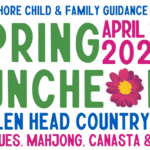Most germane in considering the push to legalize recreational marijuana use in New York are the observations of noted neuroscientist Judy Grisel who stated, “The debate around legalization — which often focuses on the history of racist drug laws and their selective enforcement — is astoundingly naive about how the widespread use of pot will affect communities and individuals, particularly teenagers.”
During the teenage years, young people are taking steps to achieving emotional independence from parents and other adults, developing a capacity for greater intimacy with peers, forging a healthy sexual identity, preparing for relational and career aspirations, and developing a set of values and an ethical system to guide one’s behavior toward socially responsible ends.
Adolescence is a time for taking risks, trying new experiences, pushing boundaries and testing limits, all necessary for teens to become healthy functioning adults.
Although not all risk is bad, according to youth development expert Peter Scales, “If risk = developmental exploration + environmental danger, the job of caring adults is to reduce the environmental danger part of the equation.” This begs the question about whether legalizing marijuana will reduce the danger or increase it.
The evidence informs us that being high on marijuana impairs attention, learning and memory and that heavy use during the adolescent years can lead to worse outcomes in education, employment, income and social functioning.
The issues that need further exploration include: how to best regulate access to legalized marijuana use to mitigate risk; how to best educate young people and their caregivers to prevent dependence; and how to maximize opportunities for social connectedness among youth.
Scare tactics or punitive measures will not suffice.
On a more fundamental level, there needs to be an understanding about the emptiness a young person (or older one) feels when they are socially disconnected and that drugs can imitate the natural high of human connection.
My colleague Larry Brendtro said it well: “Substance abuse is often an attempt to compensate for the biochemical rush of positive relationships.”
Let’s be clear: If marijuana is legalized for medical and recreational use, even if age limits are established it will not prevent young people from using marijuana. For many young people seeking to use marijuana in a clandestine way, the adventure and excitement will make it even more appealing.
According to the American Academy of Pediatrics, “Changes in the legal status of marijuana, even if limited to adults, may affect use among adolescents by decreasing the perceived risk of harm or through the marketing of legal marijuana, despite restrictions that prohibit marketing and advertising to this age group.”
Teens who feel connected are less likely to engage in high-risk behaviors. Recognizing and building on the strengths of children and teens and promoting social and emotional learning are essential to optimizing connectedness and preventing self-destructive drug use.
We are all aware of the adage, “Those who cannot remember the past are condemned to repeat it.”
Consumption of alcohol increased dramatically when Prohibition ended in 1933. In fact, Alcoholics Anonymous started in 1935. Will legalization of marijuana follow suit?
Beyond prevention and education, if the legalization of marijuana is not coupled with ample resources for schools and communities to help all young people to feel connected in meaningful ways, then for many adolescents their healthy development will be forestalled.
Andrew Malekoff is the executive director of North Shore Child & Family Guidance Center, which provides comprehensive mental health services for children from birth through 24 and their families. To find out more, visit www.northshorechildguidance.org.















